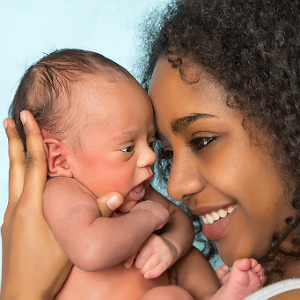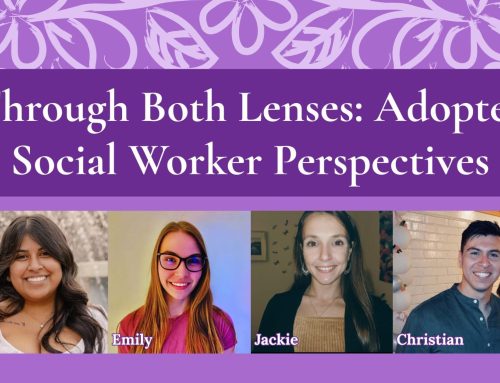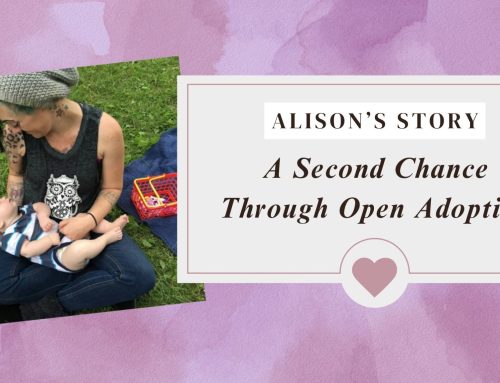 After a pregnant woman expresses her fears about parenting, we often hear the common refrain: “no one knows how to do it, but when your child is born, you’ll figure it out.”
After a pregnant woman expresses her fears about parenting, we often hear the common refrain: “no one knows how to do it, but when your child is born, you’ll figure it out.”
That’s closer to the truth than not; no amount of parenting guides and newborn classes can truly prepare you for the realities of taking care of a baby.
6 Common Parenting Mistakes & How To Avoid Them
Every new parent makes mistakes. I know my parents did, and I’m sure yours did, too. Here’s how to avoid some of the most common:
1. Be Delicate
Newborns are fragile, and many new parents are so intimidated by how delicate they are that it feels like every touch could hurt them. Don’t worry too much; your own instincts are the best guide. As a parent, you were designed to protect your baby’s life.
If they don’t kick in every time you handle your baby, remember these tips:
- Stay clean – babies don’t have fully-developed immune systems, so they’re more prone to infection than we are. Make sure that any one who handles your baby has cleaned their hands thoroughly first.
- Cradle head and neck – with weak neck muscles and poor muscle coordination, it’s difficult for your baby to support her own head. For about the first month, your baby will need you to support her head and neck.
When you carry your baby around, cradle her head in the crook of your arm. Pay special attention when you’re laying her down; always have a stable hand beneath her head and try to maintain the alignment of her spine.
Be gentle, but don’t worry too much, about touching her fontanel, that soft spot on the back of her head.
- No rough play – newborns aren’t ready for horseplay yet, so don’t swing your baby around or bounce her on your knee. And definitely don’t shake your baby: shaken baby syndrome kills off vital brain cells, and kills or injures around 1,300 American children every year.
2. Swaddling Works, But Be Careful
For the first two months of her life, your baby wants to feel like she’s back in your womb. Swaddling, when done correctly, is a great way to give her that comfort and safety again now that she’s out.
- Spread out a blanket in your baby’s crib. Leave one corner folded down; that’s where you’ll put your baby’s head.
- Lay your baby on the blanket face-up. Never face-down.
- Take the blanket’s bottom left corner and wrap it over your baby’s body, folding it under her on the right side. Make sure her right arm is covered by the blanket, but that it’s edge doesn’t constrict her neck.
- Take the right corner and fold it over her body, tucking it under on the left side. Now check to make sure you did it right:
Your baby’s knees should be bent outwards a little, and the blanket shouldn’t be too tight around her hips. Slip your hand between the blanket and her chest to make sure there’s enough room for comfortable breathing.
Always monitor your baby when she is swaddled. If she seems hot, sweating or flushed, unwrap her. Never swaddle your baby and then lay her on her stomach. This can increase the risk of Sudden Infant Death Syndrome (SIDS), and babies should always sleep on their backs.
Stop swaddling your baby around two months of age. This is when babies start to roll over on their own, and they can get trapped in the blanket.
3. Expect The Odd
New parents tend to freak out every time their baby does something that seems odd. Spitting up, throwing her arms out to the sides like a plane, even playing with their genitals – most of what seems “weird” is actually really normal.
When your baby tries to “fly,” it’s a defense mechanism called the Moro reflex. Developed over thousands of years of evolution, the Moro reflex is a way for your baby to hang on when she thinks that she’s falling. And it actually means her nervous system is developing properly.
When babies touch themselves, which starts around five to seven months, they’re just exploring a new environment. That environment just happens to be their own bodies.
The point is that a baby’s body is still developing. Muscles, brain and organs are all learning to work together, so don’t expect your child to act like an adult yet. If you are genuinely anxious about your baby’s behavior (which you will be), call your pediatrician. Don’t just rely on a Google search for information; people on the internet are crazy.
4. It’s Not That Your Baby Is Crying, It’s How Long
Most new parents think that a baby’s crying means something is wrong. That makes sense because adults usually cry when we’re sad or angry. But we also cry, less often but sometimes, when we’re filled with joy. Crying turns out to be a form of communication that can mean many different things, and that’s especially true for babies.
According to pediatric nurse Jennifer Walker, who spoke with webmd.com, “babies are designed to cry. They can be perfectly diapered and fed and still cry like you are pulling an arm off.” Crying is a baby’s primary form of communication, and it doesn’t always mean you’ve made a mistake or neglected one of your duties as a parent.
If your baby cries for more than an hour, and nothing you’ve tried works, there might be a problem. Check for other signs, like a fever (anything more than 100.4 degrees during the first three months) or swollen belly, and then contact your pediatrician.
5. Say Goodbye To Sleep
There is no way around this, and it will be terrible. You’re going to be sleep-deprived and during walking life, you’ll probably feel like a zombie. Movies and TV usually get this part right about parenting, but they never say why:
- Feeding – for the first three weeks, babies need to feed every two to three hours. Day or night, it doesn’t matter. Once you’ve fed her, checked her diaper and burped her, it’s about time for the whole thing to start over again.
- Fear – sudden infant death syndrome is a huge source of anxiety, because there’s absolutely no explanation for it. No amount of good parenting can prevent it, although recent research suggests that SIDS is neurological in nature. If you’re like normal parents, you’ll probably be up throughout the night just to make sure your baby is alive. But once you know, she’s awake and you’ll have to start trying to get her to sleep.
6. Newborns Don’t Smile
 Smiling, cooing, laughing: all those bits of positive reinforcement that let you know you’re doing a great job as a parent? Don’t expect them until later.
Smiling, cooing, laughing: all those bits of positive reinforcement that let you know you’re doing a great job as a parent? Don’t expect them until later.
Babies don’t start smiling until around six weeks. Until then they’ll just cry, or stare into your eyes in seeming bewilderment. Both are totally normal, and neither mean that you’re doing a bad job.
Staring can mean a lot of things and some of those things, like autism, are scary. But babies also stare because they’re overwhelmed. Babies don’t learn to separate their sensations from one another until later in life. During the first few months, sound, smell, vision and touch are all intertwined, which can make for a confusing life. So many babies need to “check out” for a moment.
And laughing? That doesn’t come until a lot later, around 3 to 4 months and sometimes longer.





Leave A Comment